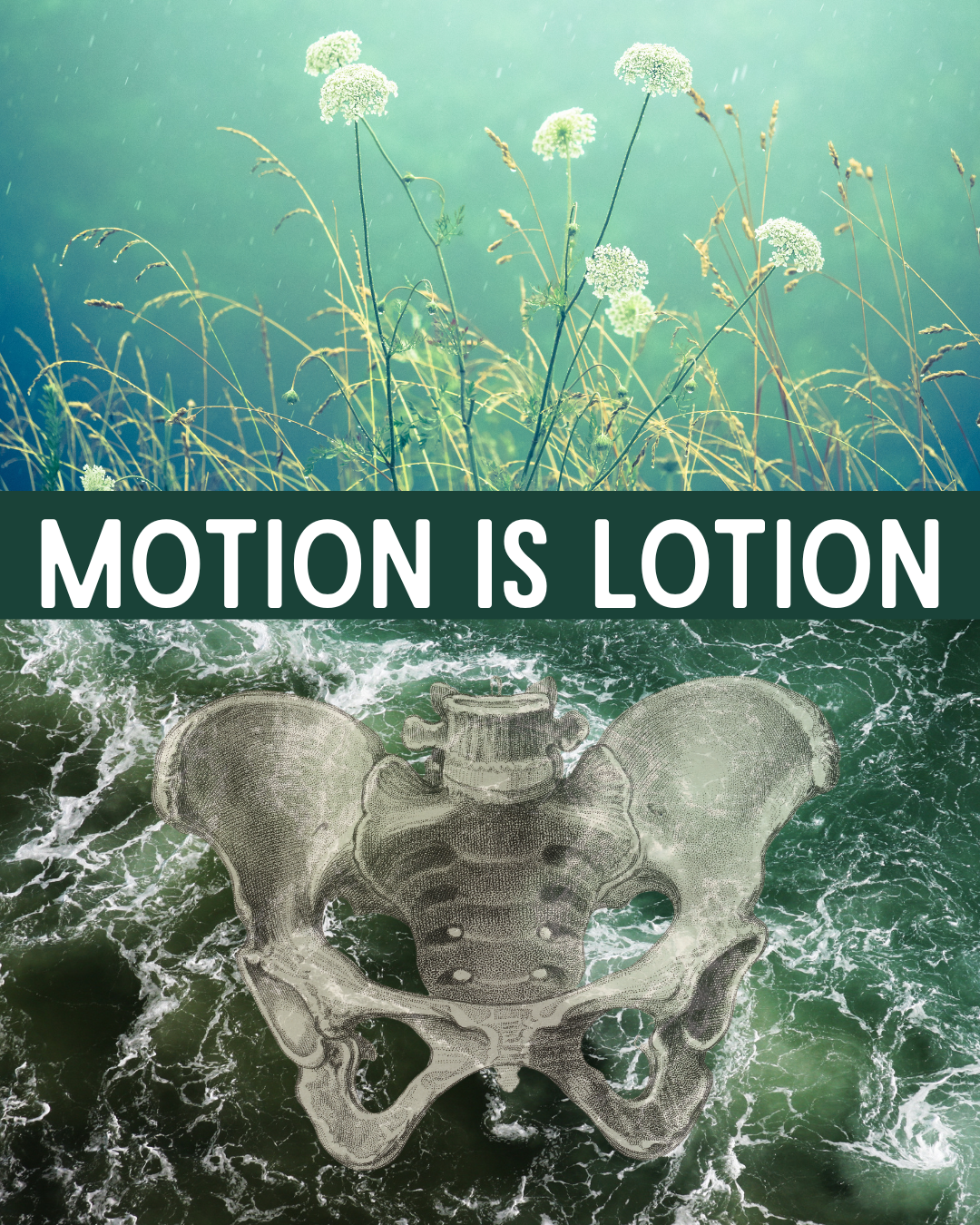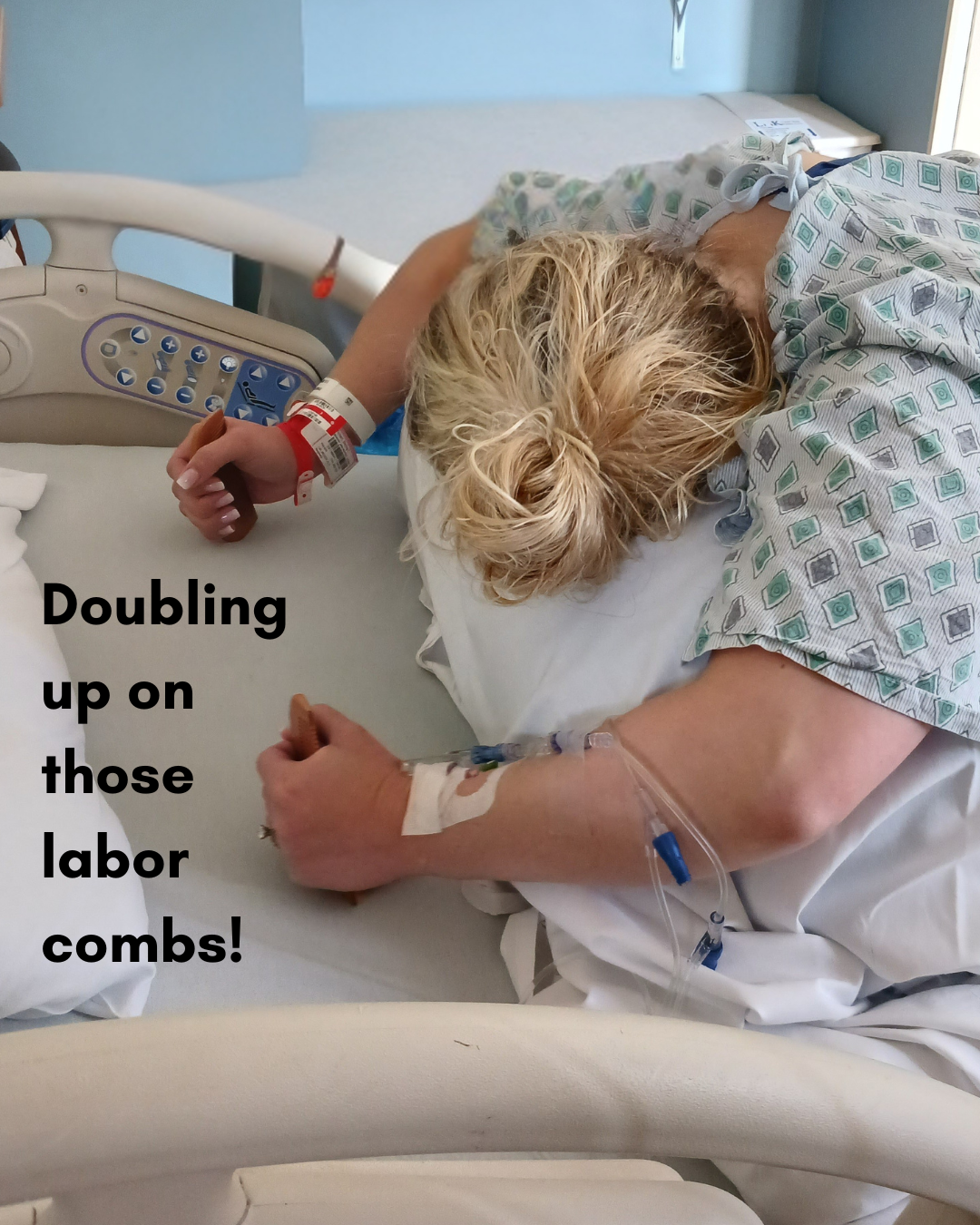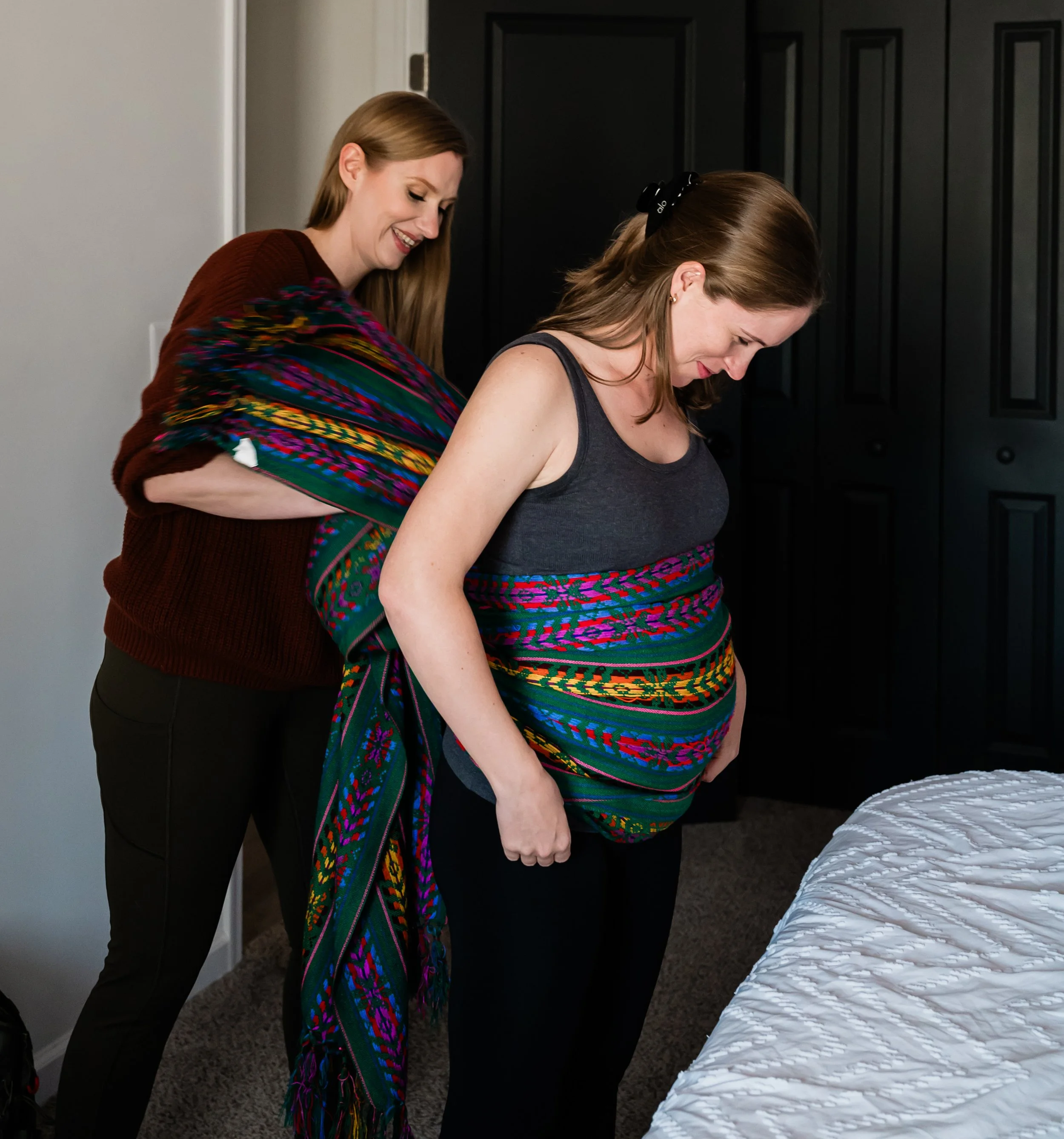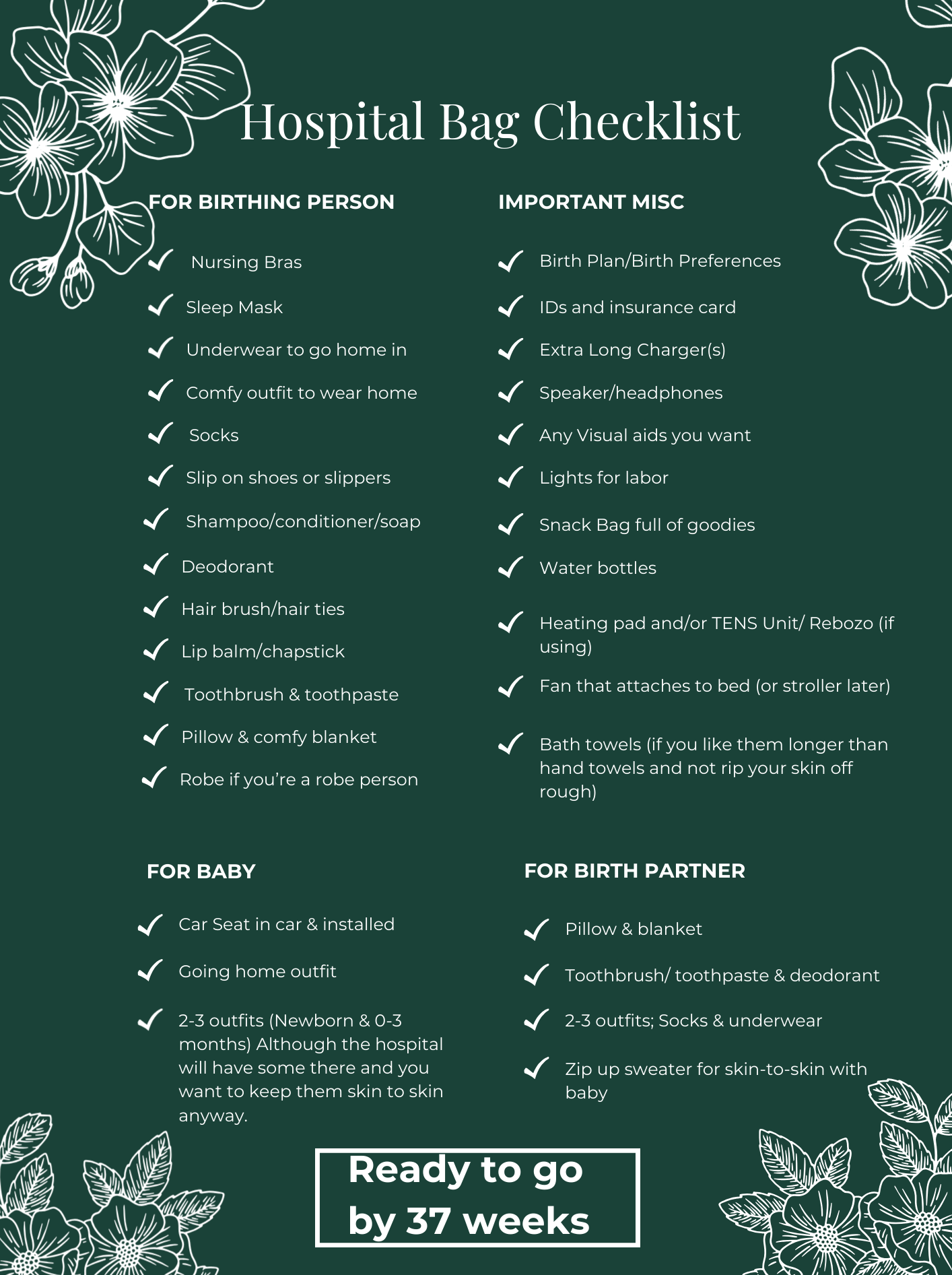What to Pack in Your Birth Bag for a Calm, Empowered Birth near Annapolis, Maryland
The truth is, that is a bullshit title. Sorry to swear at you. BUT, what’s in your birth bag is nowhere near as important as how your mind & body are prepared for birth.
I’m still going to include a list of important things to bring along below, but the reality is, while fairy lights are great, they are not going to change your birth outcome.
JUMP TO THE LIST
What can shape your labor and the way you feel about it afterwards is a plan of action that should be unfolding during your pregnancy. You need to approach your birth with the same planning effort wilderness backpackers do– don’t end up like Chris McCandleless, starved to death in a bus because he wasn’t prepared for the adventure he so desperately wanted.
Image: Revolutionary Misfit
I know that’s a harsh image for a doula to be connecting to birth. I remember first reading “Into The Wild” when I was in college and it broke my heart. I think he’s an interesting character because people are so divided on him–some hate him for endangering himself with his hubris; some are still inspired by his sense of adventure and surrender of material things. I think the birth world can be a bit divisive as well.
The question I have to ask about Chris McCandless is, would he be alive if he had been more prepared for his winter in Alaska? I think it’s glaringly obvious that he would be alive. He didn’t even have a map that showed him where a nearby ranger’s station was located with stocked food and supplies.
So, why make this about life & death? Birth is about life. It’s this weird time on the periphery where you are in the presence of creation, of life coming forth. It’s mystic yet natural, shrouded from most people’s eyes yet a part of us all.
Walking into that unprepared is not advisable. It’s never the birthing person’s fault when the birth doesn’t go as planned. I am not trying to put blame on the pregnant person. In fact, you can do everything right and birth will still unfold how it unfolds. You cannot control how or when your labor will happen. The only thing you can control is your reaction and emotional response to the inevitable bumps along the road, and do your best to be as prepared as possible.
How to prepare for your birth:
#1. Take a class.
Following a bunch of instagram accounts (as lovely as some are) is not enough to prepare you for your birth. Reading books and podcasts is also great, but that is not enough. A good, in depth birth class that speaks to you is so important. It’ll cover the physiological process of birth, what you can expect it to feel like, how to deal with those sensations, and what to expect in the immediate postpartum and beyond period.
I love HypnoBirthing classes because you watch birth videos and do hands-on exercises in class to practice the techniques.
You have many options for classes: Lamaze, the Bradley Method, Birthing from Within, Hypnobabies, etc. Read more about these options here. But do your research and see which course is right for you.
Classes taught by instructors who are also doulas can be beneficial because it means they have experience with many different kinds of births. I prefer classes taught outside of the hospital because a person being paid by the hospital to teach the class may have limitations on what they are able to say. What I hear in the birth community most often about hospital classes is that they don’t necessarily teach you how to have an empowered birth, but, rather, they teach you how to be a good patient.
#2. Prepare your Body for birth.
Motion is lotion for that little baby. Throughout the pregnancy, do your best to keep moving and stay active. If that wasn’t in your lifestyle before, I highly encourage you to start walking. If it’s the dead of winter or the hottest months, walk at the mall. If you can’t stand and move your body for more than 30 minutes on a regular basis, how are you going to do that when you are having contractions every 5 minutes? Being upright and moving around are so important to be able to do without getting exhausted during the birth–it keeps gravity on your side, helping your baby to move down in the pelvis.
Even if your plan is to get to an epidural immediately, your body is still running that birth marathon by having those contractions–you just can’t feel it. But your body will be getting tired from all that hard work. Not to mention, the average length of pushing for a first time mom is TWO HOURS. Some go longer, some shorter. That’s why people say birth is a marathon, not a sprint. Especially if you’re confined to the bed with an epidural, you still need to move and use different stretches, positions, and sways to help bring your baby down.
MOVEMENT IS KEY.
Prenatal yoga is amazing for your body because it also has a focus on breath to movement and a mental component to help center you through uncomfortable sensations.
Prenatal pilates, continuing your prepregnancy workout routines, swimming etc–whatever exercise you want to try- stay at it. Always check with your doctor when starting any new routine.
To prepare your body, you should also learn about Spinning Babies and the importance of your baby’s position before labor. Your posture affects your pelvis. Learn about this connection!
#3. Prepare your mind for birth.
Birth is 80% mental, 20% physical. The physical part is finding out ‘can you get to 10cm dilated, can you push a baby out.’ The vast majority of women have a pelvis that their baby will fit through (esp when mom is able to move around to change the shape of her pelvis). So, assume you have a pelvis that is the exact right size for your baby.
The 80% of it being mental means, you’ll be asking yourself during the birth if you can do this? Can you keep going? Whether that’s unmedicated, with an epidural, with nitrous oxide, or other pain medication, hanging in there and staying in a positive mindset is more than half the battle.
When you start to freak out and panic, that sends signals down to your baby that ‘this is not a safe place to birth’ and it can stall or “arrest” your labor. Your thoughts, feelings, emotions, and beliefs matter so much with your birth. I know it sounds cheeseball, but believing in yourself and your ability to do this is of the utmost importance.
In fact, in 2023, a study called “The mindset of birth predicts birth outcomes: Evidence from a prospective longitudinal study” was published where doctors studied two different groups of women- those who had a more medicalized view of birth and those who had a more natural view of birth (those are their words, see the study to learn more). I’ll quote directly here so you get the info straight from the horse’s mouth:
“Predictions: Conceivably, the mindset and its associated cognitions and emotions could influence the course of the birth, for example, in the sense of a self-fulfilling prophecy. Thus, a more medical mindset could cause the women to be tense during labour, implicitly expecting things to go wrong. Such tension could interfere with the natural hormone release, increasing the probability of complications that then need to be solved with interventions such as episiotomy, vaginal assisted birth, or unplanned/emergency C-section.
Results: The results revealed that the birth-related mindset assessed during pregnancy predicted labour and birth: Women with a more natural mindset had a higher probability of having a low-intervention birth. This in turn had a positive effect on the birth experience, which led to greater general emotional, and physical well-being in the first 6 weeks after birth. Breastfeeding and the well-being and (perceived) behaviour of the infant were also positively affected. These short-term positive effects in turn predicted longer-term psychological well-being up to 6 months after the birth, operationalized as postpartum depression, post-traumatic stress symptoms, and bonding with the infant. These results are crucial as depression in mothers does affect both mother and child, for example, the mother's caregiving ability (Priel et al., 2019) and children's stress response and physical health such as the function of the immune system (Dekel, S. et al 2023).”
Mindset Matters. I highly recommend looking into mindfulness practices to help you connect with your baby while you're pregnant.
Practicing meditation has many benefits to pregnancy, including: lowering stress, lowering blood pressure, improving sleep quality, and improving overall reported well-being. See my blog post about Mindful pregnancy in Anne Arundel County for more information.
#4. Prepare your partner.
Your partner should be taking those classes with you. They should be reading or listening to audiobooks and podcasts about how to be an awesome birth support person. They should watch some (safe/approved) birth videos. Babies come out looking very scary. If you’re not expecting a purply, limp little thing, it can be shocking. We don’t want partners to feel panic when that’s a normal looking sight at a birth.
Releasing that oxytocin during birth will help labor to progress.
Partners should be practicing massage techniques on you regularly. They should be figuring out what affirmations you want to hear at the birth (or whatever kind of encouragement you want). Their goal at the birth needs to be to support you the way they’d want their baby to be supported. Anticipating needs, intuiting what you’re feeling and what you need to hear, showing you they’ll be by your side no matter what.
#5. Get a doula.
This isn’t a plug to sell doula services to you. The reality is, if you don’t have a doula, for most of the labor, it’ll be you and your partner alone in the hospital room (if you’re not having a home birth). The nurse will come in maybe hourly to check in/make adjustments, but you’re mostly on your own. Doctors have many patients to see and won’t always tell you what starting one intervention will truly mean. I had a mom tell me that at her first birth, she wanted to get in the shower for most of the labor, but once she said yes to a medication that softens the cervix, then (after she took it) is when they told her she’d need constant fetal monitoring and she couldn’t get in the shower at all.
I wasn’t her doula then, but if I had been, I would have let her know that before she made the decision. They took away her ability to make an informed decision. Knowing all your options and knowing what policies go along with which medical options is where a doula comes in so handy.
If you like my nerdy birth memes, come check out my instagram!
In a labor room, there isn’t anyone there all the time to remind you to change positions or who knows which positions are a good idea based on the baby's station/position. There’s no one who is with you constantly who knows where the barf bags are, how to raise the bed up so you can lean on it, no one telling you what’s normal and what’s not. You could have the best nurse in the world, but they still usually have at least one other patient they’re taking care of.
Doulas have been proven to lower intervention rates, lower c-section rates, and have been shown to increase a woman’s overall reported satisfaction with her birth. Doulas also help the partner feel more prepared and capable during labor. They are such a valuable and needed part of the labor process to make the whole experience less stressful and more joyful.
SO, “What to Pack in Your Birth Bag for a Calm, Empowered Birth” depends on what is right for you.
What you do before the birth matters so much more than what you pack, but there are some things that’ll help you to build that birth cave where you feel safe and calm:
-Did I mention fairy lights? Lighting is so key to staying chill. The hospital lights are so bad. Bring your own fun lighting. It can be tea lights, fairy lights, a string of christmas lights!--whatever works for you. I love my galaxy light in addition to fairy lights, depending on the mama’s mood.
Video of hospital room with several galaxy lights and light projectors to soften the mood and allow for birth to progress at Anne Arundel Medical Center.
-I always have a labor comb in my doula bag, even though that contrasts with most HypnoBirthing teachings. Pain to distract from pain (squeezing the comb during the contractions) can be very effective.
-I love my rebozo and bring it to every birth. If you invest in your own, they can be a big help during pregnancy and labor, and you can use it to wrap the baby to baby wear.
-If you like it dark, bring an eyemask. Not the cheap free kind from an airplane. They have awesome memory foam, soft, lovely eyemasks out there. I love this one from Alaska Bear.
-Your own pillows and blankets will be much better than the hospital ones. I know it’s a lot to carry, but they’ll come in handy either at the birth or on the postpartum unit. Make it easy for you to relax because the hospital won’t!
-Anything you’re going to hang! Birth Affirmation cards, pictures, banners, etc. I always have painter’s tape in my bag so I can hang anything up. Most women close their eyes in a certain part of labor and go very internal. But it’s so nice when they open their eyes to see a birth affirmation or wedding picture to release that oxytocin instead of a blank hospital wall.
-Lip balm/chapstick. You’ll be doing a lot of breathing during birth and hospitals are very dry. It’s your job to stay hydrated, but even when you’re drinking water constantly, your lips and mouth can feel dry for all the breaths in and low moans. Having lip balm on hand is a good idea. Make sure your partner can easily find it in your bag without you having to describe where it is.
Speaking of partners, what massage tools are you planning on bringing? A roller, massage gun, a TENS unit, heating pad?
Have your bag ready and packed by 37 weeks!
Your bag is important, but not as important as all the mental and physical prep work you’ll do long before labor begins.
A more comprehensive Hospital Bag Checklist is below:
As a doula near Annapolis, I regularly attend births at Anne Arundel Medical Center.
During my prenatals with clients, I go through all the standard medical procedures to expect so clients know their options before birth and we can fine tune those birth preferences. Limiting all the “new” information during labor is so important. Things feel less scary if you’ve at least heard about that option before you’re in labor. Compassionate and knowledgeable birth support is a game changer.
I hope you’ll consider hiring a doula–I promise you won’t regret it!
Sources:
Hoffmann, L., Banse, R., & Hilger, N. (2023). The mindset of birth predicts birth outcomes: Evidence from a prospective longitudinal study - 2023 - European journal of Social Psychology - Wiley Online Library. Wiley Online Library. https://onlinelibrary.wiley.com/doi/10.1002/ejsp.2940










